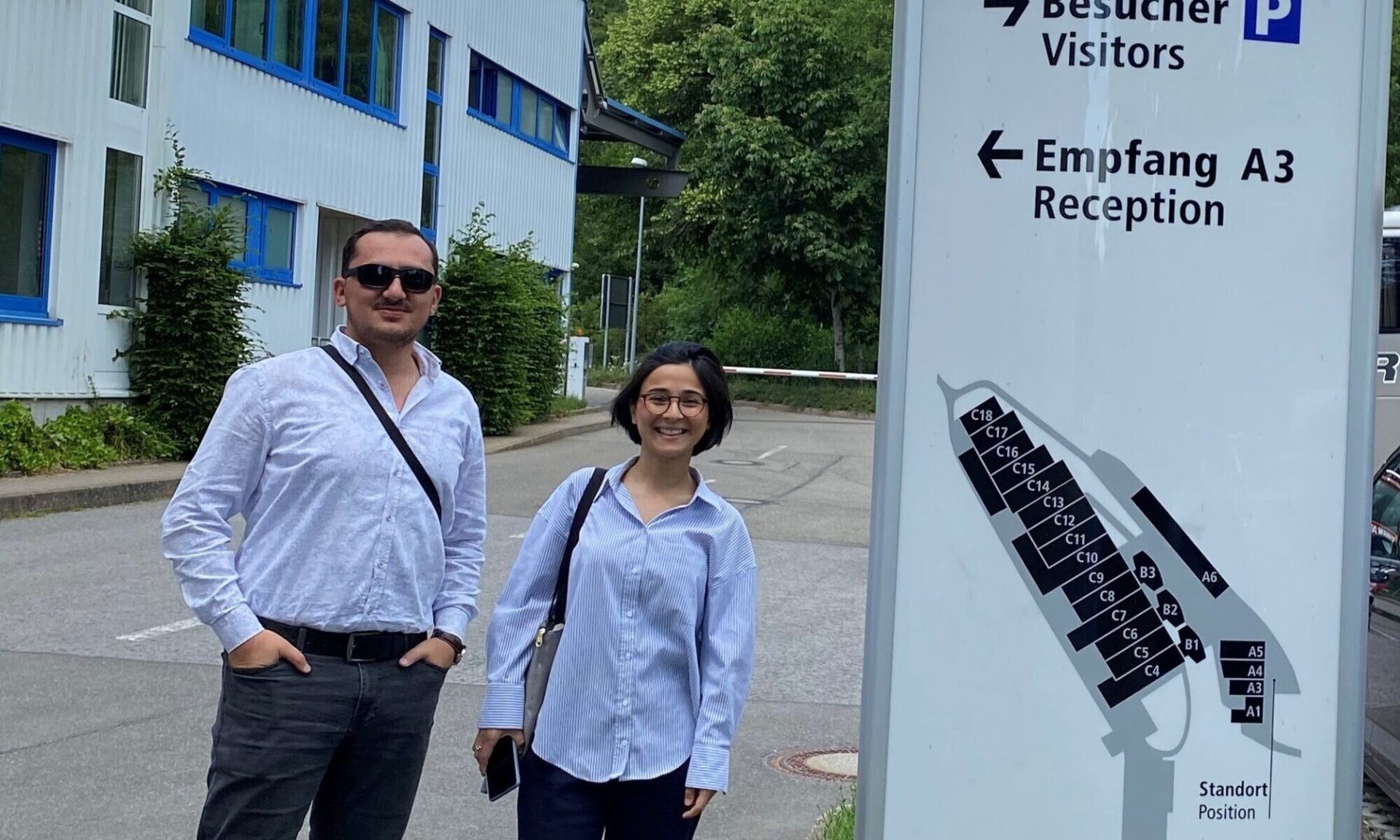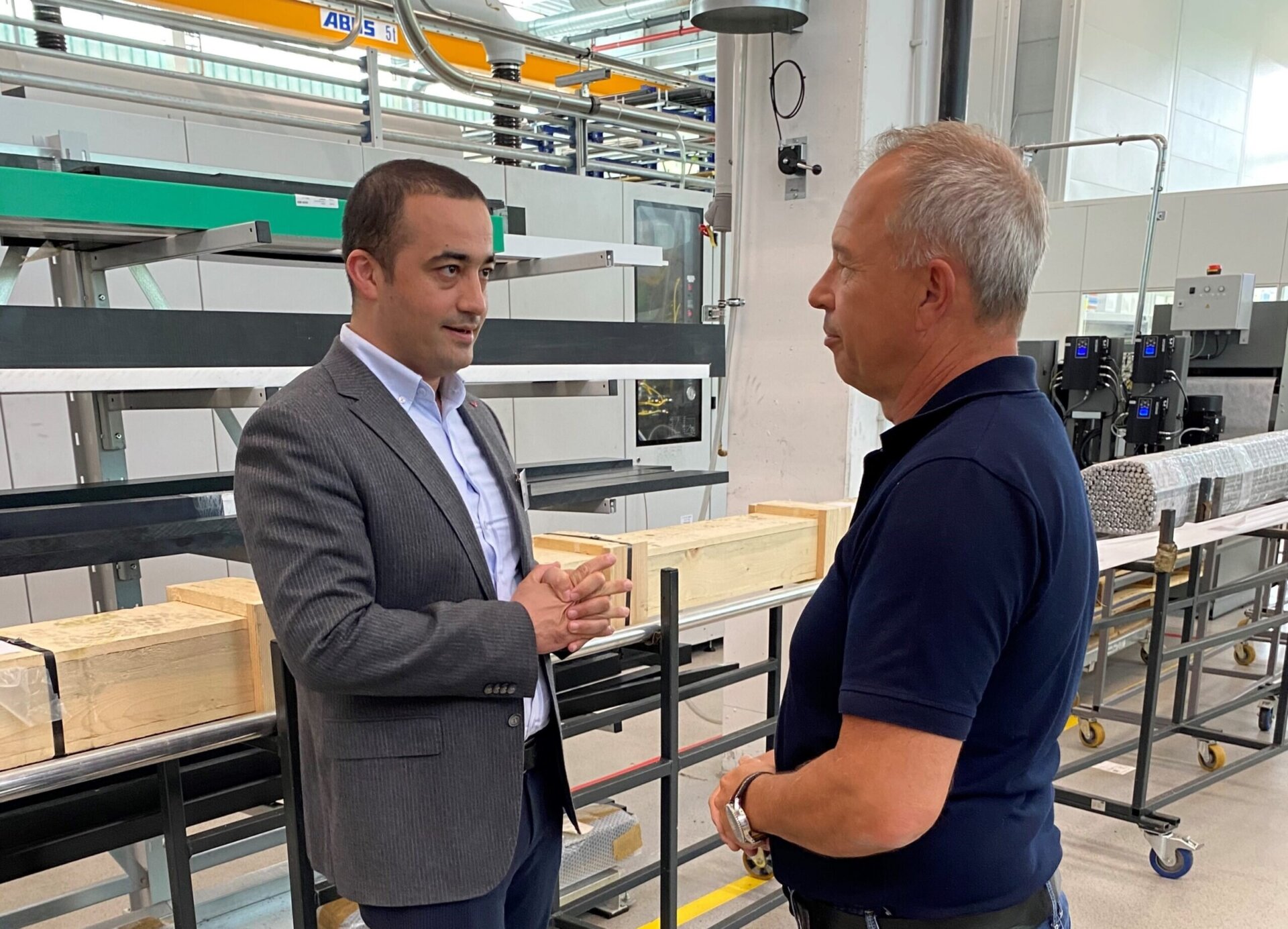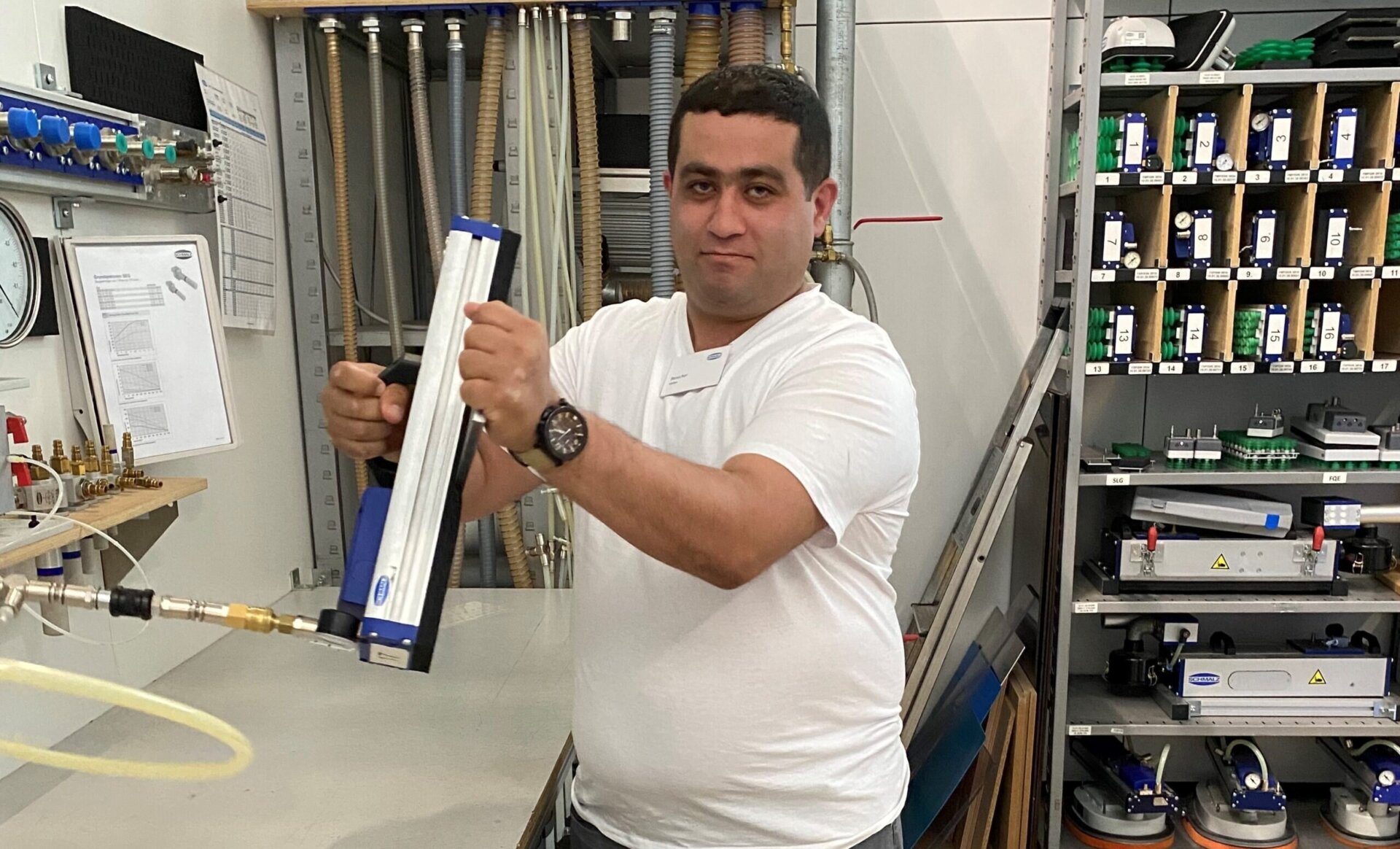Tradition and innovation lead to international success
As one of the market leaders in automation with vacuum and for ergonomic handling systems, Schmalz GmbH has been a partner in worldwide demand for years. Azerbaijani managers visited the company to see the innovative strength of the company and gained important insights into international business processes.
First razor blades, then transport equipment, today vacuum technology and energy storage. Since 1910, the history of the Schmalz company has been characterised by continuous change, by markets that change and by a continuous development to create something new for customers. Founded as a razor blade factory, Schmalz has today developed into an internationally successful industrial company with customers from almost all sectors – from logistics to electronics and furniture to the automotive industry.


Today, Schmalz is actively represented in 70 countries with its own subsidiaries or through trading partners – with 1,800 employees and a total of 8,000 product components. Despite the pandemic, which also meant that Schmalz had to restructure its business processes, the development momentum on the international markets continues, among others through the cooperation with the Egyptian MP alumnus Dr Moataz Elkinawy. His company KEFAC acts as a sales partner for Schmalz in the areas of components and gripping systems for automation as well as vacuum clamping technology.
As a third-generation family business, the company continuously pursues sustainable goals and acts accordingly with both its new product development for energy storage systems and its own power plant. Schmalz wants to generate more energy regeneratively with its own plants at its headquarters in Glatten than is consumed by the company. The wind turbines and photovoltaic collectors required for this have been continuously expanded for decades.
Driving force: innovation and agility
After the introductory presentation by Jochen Gunkel, Head of Region, the managers from Azerbaijan were impressed by the high degree of automation in production and logistics (warehousing) during the subsequent tour of the plant. The participants also explored the effect of vacuum technology in the test environment at Schmalz.

The programme participants convinced themselves that the company is not only innovative in product development, but also operates in modern organisational and agile team structures: in the team rooms, named after the corporate values “Pioneering, Sustainable and Inspiring”, as well as in the production and logistics areas, where the processes for the continuous improvement of error correction and quality, for example, are worked on independently in the team in order to shorten reaction and optimisation times and increase self-control in the team.
At the end of the visit, the Azerbaijani managers had a different perspective on the importance of both communicating the company values congruently externally via the brand and making them tangible internally. And, in parallel, to develop a working environment that attracts and binds many skilled workers and, at the same time, to create innovations for tomorrow. Numerous implementation ideas for their own companies in the areas of working environment, change management and product development are already in their heads, the managers confirmed.
“Of particular interest was the exploration of a family business with a rich heritage spanning over a century. The unique culture and traditions embedded in these companies captivated my attention and left a lasting impression on me,” summarises Toghrul Mukhtarov from Norm Cement his impressions of the company visit.
The fact that tradition and innovation can be combined well was once again illustrated by the visit to the Baden-Württemberg company. The executives will now take this experience and the ideas for implementation back to Azerbaijan.